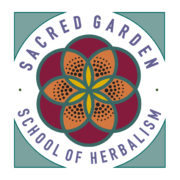UPCOMING EVENTS
Conscious Kids Story & Tea Time
with Lakeja Baylor

Foundational Herbology
9 month program is now enrolling!

Registration closes March 15th
+++++++++++++
Women’s Herbal Wellness Class Series
with Alicia Garza
Grounded Sound Baths
with Terrie Weaver

Fridays March 6th & 20th
6:00 pm
*************
3-Day Immersion: Reading the Body Immersion
with Margi Flint

October 23rd-25th : 10am-4pm
Hold your spot here







Muira Puama
/in Herb of the Month /by Ashley DavisMuira puama is a plant native to the Amazon and is sometimes referred to as Viagra of the Amazon. It is most famous for its aphrodisiac properties, but this tree is also a brain and nervous system tonic, energy tonic and anti-rheumatic with no toxicity or drug interactions. More people should know about this valuable herb.
BOTANICAL NAME: Ptychopetalum olacoides
COMMON NAMES: Potency Wood, Viagra of the Amazon
FAMILY: Olacaceae
PARTS USED: Bark, root
BOTANICAL DESCRIPTION: Muira puama is a small evergreen tree/bush that grows to 14-17 ft tall, has short-petioled leaves that are light green on top and dark brown on the bottom. It produces small, white, jasmine scented blooms in short axillary racemes of 4-6 flowers. Its roots that are tough and fibrous thin bark and broad wood, with a light brown interior.
GROWING/HARVESTING/PROCESSING: Muira puama is native to the Brazilian Amazon rainforest, northern South America, and has many indigenous names. It requires a tropical climate, light to heavy soils, preferring those that are well-drained, near neutral pH, requires full sun exposure, and plentiful moisture to thrive. Bark and root are harvested throughout the growing season and can be used fresh or dried and stored in a cool, dry place.
ENERGETICS AND TASTE: Warming, relaxing/calming, sweet, astringent, stimulating, earthy
ACTIONS AND PROPERTIES: Tonic, aphrodisiac, aromatic, adaptogenic, analgesic, anti-fatigue, antioxidant, anti-ulcer, hypotensive, nootropic, nervine, neuroprotective, neurasthenic, anti-depressant, astringent, cardiotonic, bitter, cholagogue, anti-cholesterol, anti-rheumatic
INDICATIONS: A tonic for nervous conditions, depression, memory enhancement, stress relief, promotes overall nerve function and relieves nerve pain.
Supports reproductive system function. Increasing blood flow to the pelvis. Treats the discomfort of menopause in women and cramping associated with menses.
It has also been used for alopecia, low libido (mainly for men), impotence, Beri beri (vitamin B1 deficiency), erectile dysfunction, anorexia, dysentery, rheumatism, and hair loss/balding.
Traditional medicinal uses:
Historically, all parts of Miura Puama have been used medicinally, but the bark and roots are the most-utilized parts of the plant. It has long been used in the Amazon by indigenous peoples for a number of purposes. Native peoples along the Brazilian Amazon’s Rio Negro use the stems and roots from young plants as a tonic to treat neuromuscular problems; a root decoction is used in baths and massages for treating paralysis and beri-beri; and a root-and-bark tea is taken to treat sexual debility, rheumatism, grippe, and cardiac and gastrointestinal weakness. It’s also valued there as a preventive for baldness. In Brazilian herbal medicine, Miura Puama still is a highly regarded sexual stimulant with a reputation as a powerful aphrodisiac. It has been in the Brazilian Pharmacopoeia since the 1950s. It is used as a neuromuscular tonic for weakness and paralysis, dyspepsia, menstrual disturbances, chronic rheumatism (applied topically), sexual impotency, grippe, and central nervous system disorders.
Early European explorers noted the indigenous uses and the aphrodisiac qualities of muira puama and brought it back to Europe, where it has become part of herbal medicine in England. It is listed in the British Herbal Pharmacopoeia (a noted herbal medicine source from the British Herbal Medicine Association) where it is recommended for the treatment of dysentery and impotence. In Germany, muira puama is employed as a central nervous system tonic, for hookworms, menstrual disturbances, and rheumatism. Muira puama has been gaining in popularity in the United States, where herbalists and health care practitioners are using it for impotence, depression, menstrual cramps and PMS, nerve pain, and central nervous system disorders.
CURRENT RESEARCH REVIEW:
In one of the early studies, researchers indicated that muira puama was effective in treating disorders of the nervous system and sexual impotence, and that “permanent effect is produced in locomotor ataxia, neuralgias of long standing, chronic rheumatism, and partial paralysis.” In 1930, Meiro Penna wrote about muira puama in his book Notas Sobre Plantas Brasilerias. He cited experiments conducted in France by Dr. Rebourgeon that confirmed the efficacy of the plant for “gastrointestinal and circulatory asthenia and impotency of the genital organs.”
The benefits of treating impotence with muira puama have been studied in two human trials in France, which reported that muira puama was effective in improving libido and treating erectile dysfunction. In one French study among 262 male patients who experienced lack of sexual desire and the inability to attain or maintain an erection, 62% of the patients with loss of libido reported that the extract of muira puama “had a dynamic effect,” and 51% of patients with erectile dysfunction felt that muira puama was beneficial. The second study evaluated positive psychological benefits of muira puama in 100 men with male sexual weakness. The therapeutic dosage was 1.5 g of a muira puama extract daily. In their final report, researchers indicated muira puama could “enhance libido [in 85% of test group], increase the frequency of intercourse [in 100%] and improve the ability to maintain an erection [in 90%].”
In other recent clinical research, muira puama extracts have been reported to have adaptogenic, antifatigue, antistress, and beneficial effects on the central nervous system. A specially-prepared extract from the root of muira puama has been patented for its ability to “relieve physical and mental fatigue” and for “ameliorating a weakened constitution.” Researchers in Brazil documented a definite central nervous system effect of the bark in studies with mice. The bark of muira puama also has demonstrated a mild, short-lived, hypotensive effect. The root was found to inhibit stress-induced ulcers, while the leaf demonstrated an analgesic effect. Another U.S. patent has been filed on muira puama, citing that it can “reduce body fat percentage, increase lean muscle mass and lower cholesterol” in humans and animals with long-term use (and with no toxicity noted).
The newest research confirms muira puama’s traditional use for memory and nervous disorders. Brazilian researchers reported in 2003 that an alcohol extract of muira puama facilitated memory retrieval in both young and aged mice and noted it may be beneficial for Alzheimer’s patients. Their next study published in 2004 reported that an alcohol extract of muira puama protected and increased the viability of brain cells in mice (partly through an antioxidant effect) which may be beneficial for stroke victims. Toxicity studies with mice published in 1983 indicates no toxic effects.
CONTRAINDICATIONS: Avoid using while pregnant/ breastfeeding due to lack of info on safety.
PREPARATION AND DOSAGE:
DRUG INTERACTIONS: None reported
COMBINATIONS: Goes well with Damiana, maca, and oats to increase its aphrodisiac effects. Also pairs well with ashwagandha.
REFERENCES: